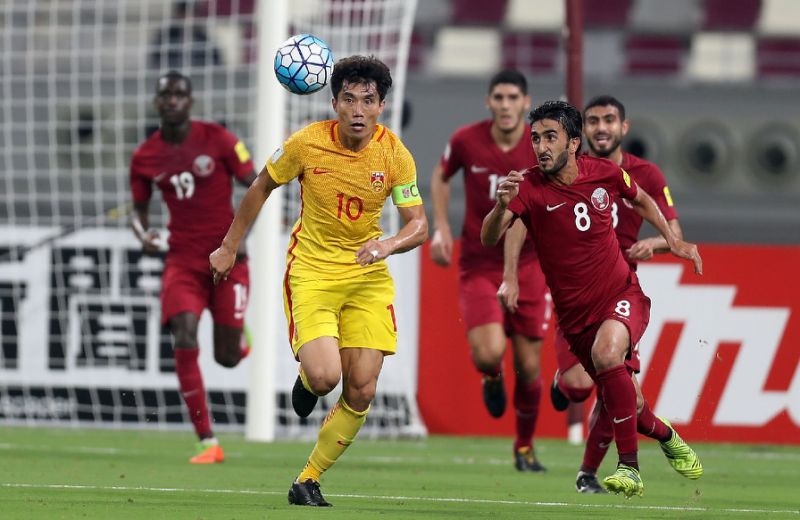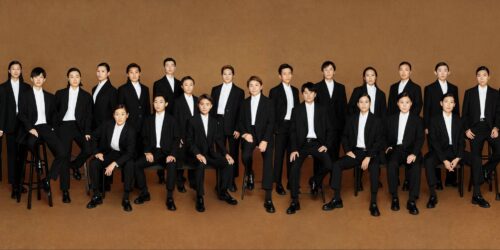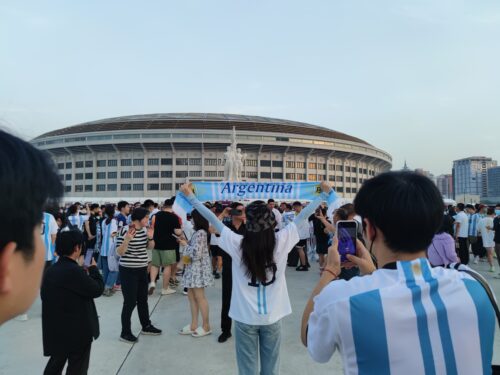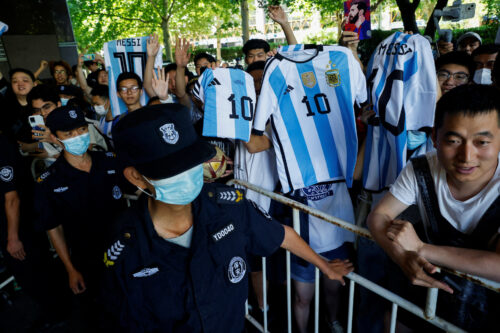Qatar 2022 to stick with 32-team format, delivering massive blow to China’s World Cup hopes

The China Sports Column is a The China Project weekly feature in which China Sports Insider Mark Dreyer looks at the week that was in the China sports world.
This week was fairly monumental when it comes to the future prospects of Chinese football, with separate news items concerning the World Cup, China’s head coach situation, and the country’s senior soccer officials.
First, FIFA confirmed that the next men’s World Cup — Qatar 2022 — would not, as originally anticipated, expand to 48 teams, remaining instead at its current size of 32.
That’s a massive blow to China, because under the current system, the Asian Football Confederation (AFC), of which China is a part, is allocated just 4.5 spots for the World Cup, meaning four teams from the region qualify automatically and a fifth AFC team enters a playoff with a South American team, from which the winner advances.
Japan, South Korea, and Australia are all but certainties to qualify from the AFC these days, meaning that there isn’t much room left for the other AFC teams. Additionally, Iran has grown in stature, while Qatar will claim one of the spots as 2022 hosts.
But under the 48-team system, the AFC would be given eight spots — at 74th in the world, China is currently the eighth best team in Asia — dramatically changing the qualification landscape.
And while an expanded World Cup would likely have meant two other co-hosts automatically filling AFC spots in addition to Qatar, China’s chances would still have improved.
But for all the talk about Chinese sponsors filling FIFA’s coffers in return for increased influence on the global stage, that will now not happen until 2026, when the world will be treated to 16 three-team groups — yes, all the way up to Group P.
So while 2026 is realistically when we might next expect to see China play in its second-ever World Cup, the country will still attempt to do so four years earlier — and Marcello Lippi is the man tasked once with that goal.
On Friday, the CFA confirmed the rumors that Lippi was returning to the hot seat, just four months after leaving the post, following a less than stellar interim appearance from Lippi’s protégé Fabio Cannavaro, who lost games against Uzbekistan and Thailand at the China Cup in March before promptly retreating to his other job as manager of Chinese Super League (CSL) team Guangzhou Evergrande.
Lippi was lured out of retirement to take the China job for the first time back in 2016, and apparently life among the olive groves back home in Tuscany wasn’t quite as appealing as he imagined.
It’s been troubling this columnist as to why on earth Lippi would repeatedly turn down requests from the CFA to extend his contract only to change his mind so soon after stepping down.
If you’ve ever seen any pictures of Lippi, it’s quite clear he didn’t enjoy the job — so money appears to be the only plausible answer.
Some media reports placed Lippi’s salary upwards of $28 million per year during his first stint in the job — or, to put it another way, twice the combined salaries of those coaching the top eight teams at the 2018 World Cup, as Chinese fans were quick to point out.
His first task, according to Chinese media, is to compile a new list of candidates for the team, leaving two obvious questions: from where is Lippi supposed to conjure up these future stars, and how much is he being paid this time to make it worth his while?
Meanwhile, a little more clarity has been provided about the senior ranks of the Chinese Football Association (CFA), with a void left since table tennis legend Cai Zhenhua 蔡振华 was banished from his role as CFA President and moved to the All-China Federation of Trade Unions last year.
Zhang Jian was left as Deputy President, but everyone knew that those at the CFA — independent in name only — was simply reporting to the sport’s ministry, headed by Gou Zhongwen and his deputy Du Zhaocai.
In another reshuffle announced on Friday, Zhang Jian has now been moved to head up the information center within the sport’s ministry, with a brief to focus on esports, while Chen Xuyuan, chairman of CSL club Shanghai SIPG, has been selected to lead a committee that will appoint the next CFA head.
If history is any guide, he’ll name himself. Yao Ming, for example, led the search to find the CBA head, before filling that role.
But it doesn’t really matter. An overhaul at the Chinese Football Association is a bit like rearranging the deckchairs on the Titanic.
That’s perhaps a little harsh, because Chinese soccer is not actually sinking per se, it’s just not getting any better. And no amount of money in Marcello Lippi’s pocket is likely to change that any time soon.
The China Sports Column runs every week on The China Project. Follow Mark Dreyer @DreyerChina.





